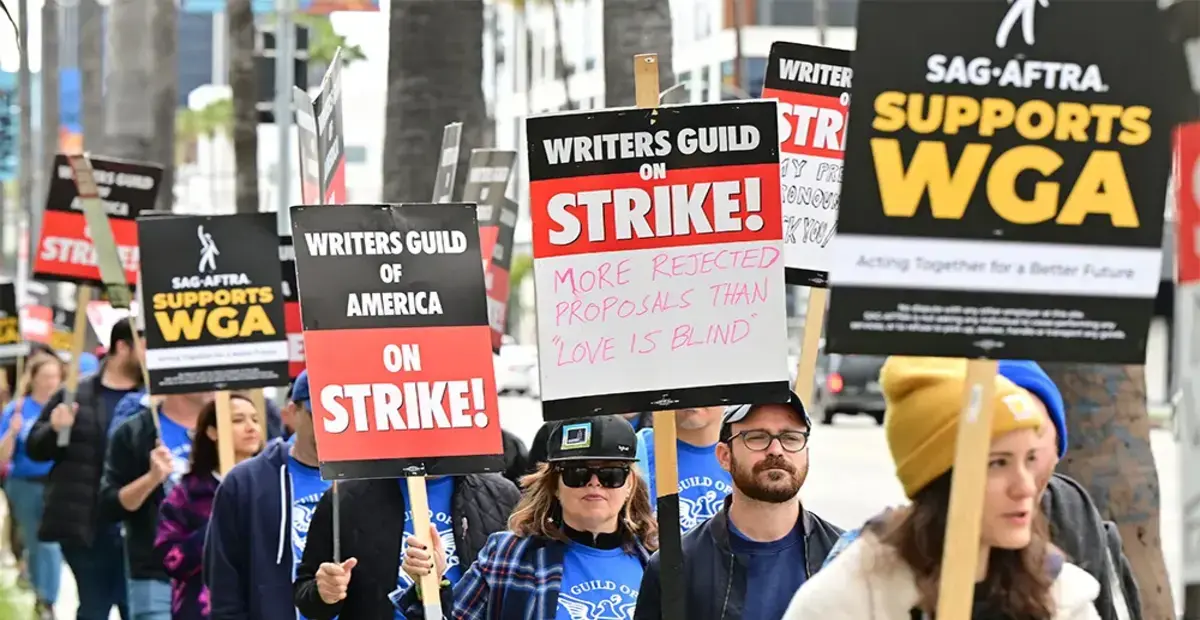Physical Address
304 North Cardinal St.
Dorchester Center, MA 02124
Physical Address
304 North Cardinal St.
Dorchester Center, MA 02124


The writer’s strike of 2007- 2008 was one of the longest and most prominent Hollywood strikes in history. Lasting over 100 days, it had wide impacts on the TV and film diligence. Now, over 13 times latterly, numerous are still wondering when will the writer’s strike eventually end. While the striking itself is long over, the impacts are still being felt. This article will give a comprehensive update on the 2007- 2008 WGA strike, its issues, and how Hollywood has changed in its wake.
The placing writers of the WGA formally referred to as a stop to their strike on February 12, 2008, after accomplishing a tentative agreement with the Alliance of Motion Picture and Television Producers (AMPTP). This added relief to many in Hollywood and visitors at domestic, because it supposed tv suggested that films should resume normal manufacturing. The key wins for writers included growing wages for work produced for new media just like the net and mobile phones. They also secured “terms of engagement” announcing writers have to be compensated for content reused on virtual systems. This hooked up important precedents around compensating creatives for work allotted online.
Also, Read this one: How to Share a YouTube Video on Instagram – Complete Walkthrough
The 2007-2008 WGA strike followed closely on the heels of every other strike – the one hundred-day strike via the Screen Actors Guild (SAG) which occurred from October 20, 2007 to February eleven, 2008. This made it an exceptional scenario, with the two largest Hollywood unions hanging in succession. The SAG strike concentrated on problems like payment for Internet and DVD exercise of programming. While SAG contributors had been putting, WGA writers persisted in writing underneath an expired settlement. But once the SAG strike concluded in February, the WGA without delay launched their strike simply days in a while on November 5th, 2007.
<h3>What does the agreement say?</h3>
The final settlement the WGA secured in February 2008 contained numerous main provisions:
This landmark agreement essentially changed how writers are compensated within the digital age, updating long time-antique policies to apply to rising distribution avenues. It changed into a first-rate turning point for Hollywood unions organizing in new media.
With the settlement in the area as of February 2008, the legitimate strike changed into over. Writers had succeeded in securing important profits and setting up key concepts for participating in the online market. Hollywood manufacturing ought to begin to ramp again up. However, the impacts had been still being felt for a while.
Many writers mentioned they persisted in a defacto, unofficially ‘restricted strike’ for months after to squeeze out higher pay deals on character indicates and contracts. Networks have been wary to greenlight new tasks without establishing higher minimum pay protections. The recovered misplaced productiveness additionally took time, as film/TV writers laboured in delayed stages to capture up after months on wooden traces.
While the strike was resolved, the “strike hangover” lasted until 2008. But via 2009, Hollywood had in large part bounced back to pre-strike production stages as the brand new ordinary installed via the WGA agreement took impact for the duration of the industry. So in impact, the lingering impacts and changes took almost a yr to completely get over even after the official strike ended.
No, the actors represented through SAG-AFTRA (Screen Actors Guild – American Federation of Television and Radio Artists) aren’t presently on strike. As cited, SAG participants had preceded the WGA strike with their very own 100-day strike from October 2007 to February 2008.
This SAG strike was also resolved with a brand new agreement securing residuals from virtual platforms and expanded pay fees. With both the important Hollywood unions now working below-renewed contracts thanks to the pivotal 2007-2008 strikes, there has no longer been any industry-huge paintings stoppage from that point onward.
Some smaller SAG-AFTRA strikes have taken place given man or woman companies like VoiceOver moves. But the 2 largest Hollywood unions of writers and actors have not engaged in a coordinated enterprise-extensive strike movement in over thirteen years now. Contracts are reasoned constantly, but logrolling occurs currently without any cessation of labour. Those landmark 2007-2008 strikes honestly changed the way ongoing negotiations characteristic.
While the actual striking resulted in early 2008, the 2007-2008 WGA strike still had main residual impacts that permanently modified Hollywood’s panorama:
So while the striking itself resolved, the 2007-2008 WGA strike became a substantial watershed moment. It accelerated many inevitable changes, reinforced unions, and created new enterprise dynamics that altered Hollywood’s enterprise version going forward. In many approaches, the publish-strike “every day” was a hugely different one than what existed before.